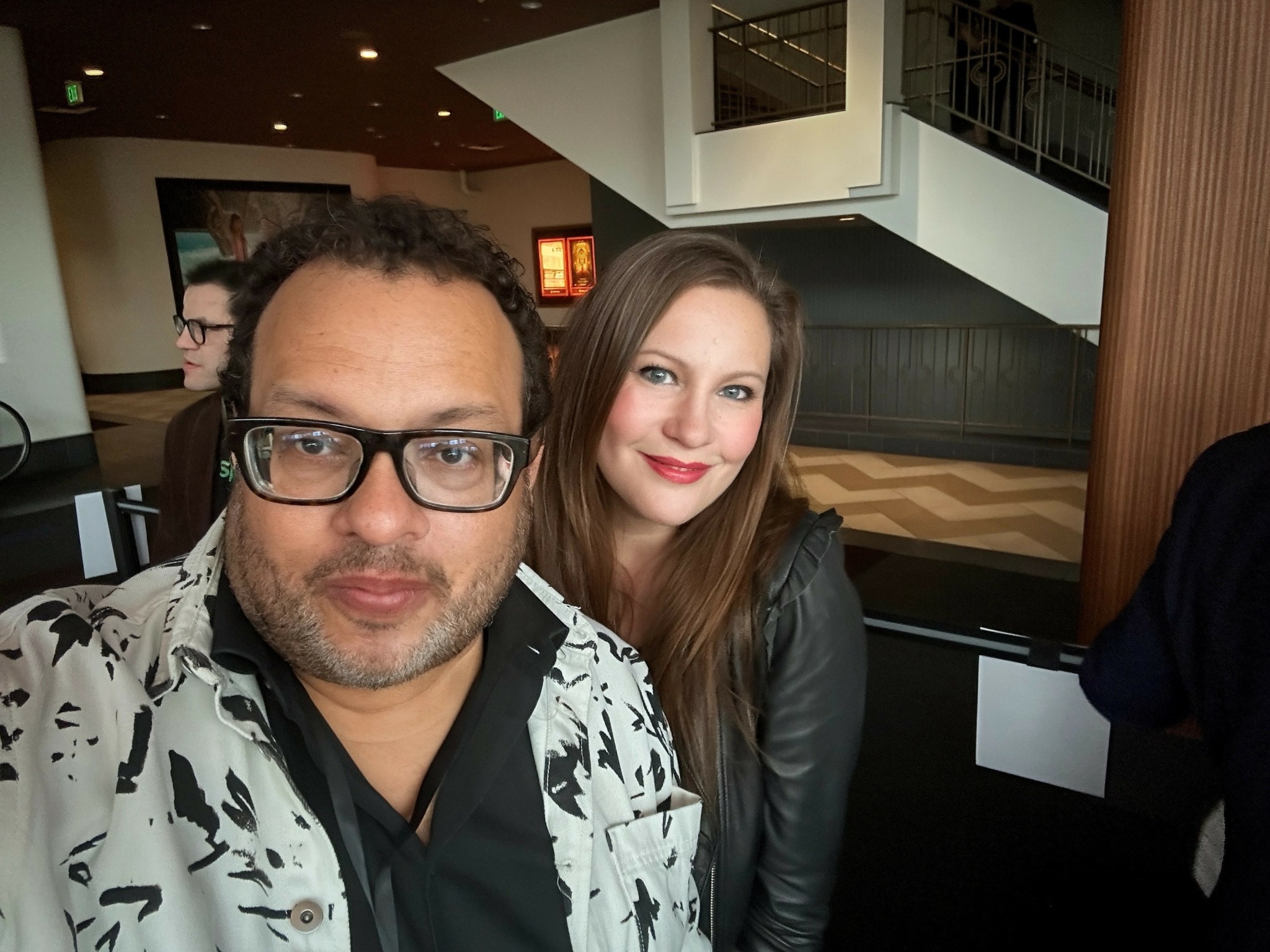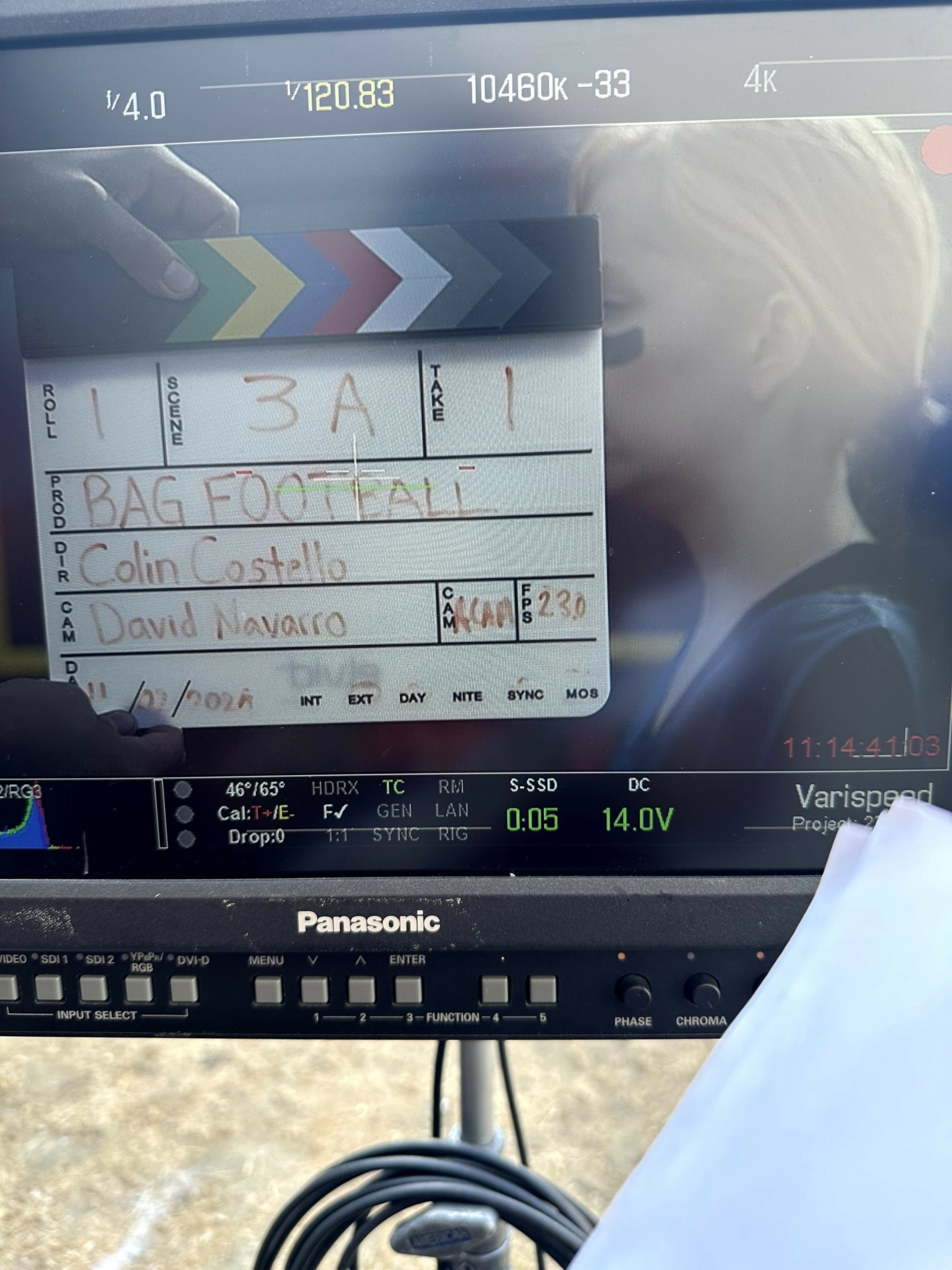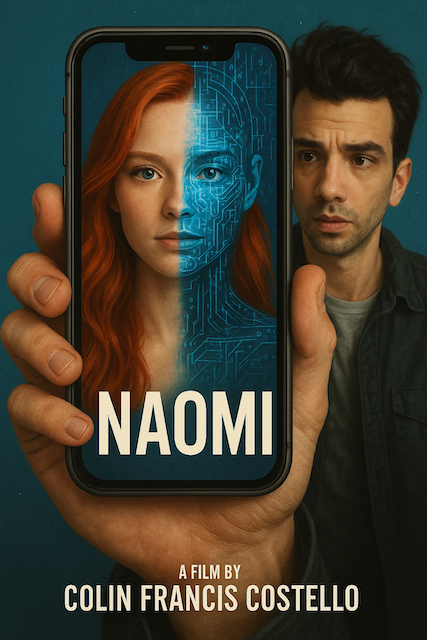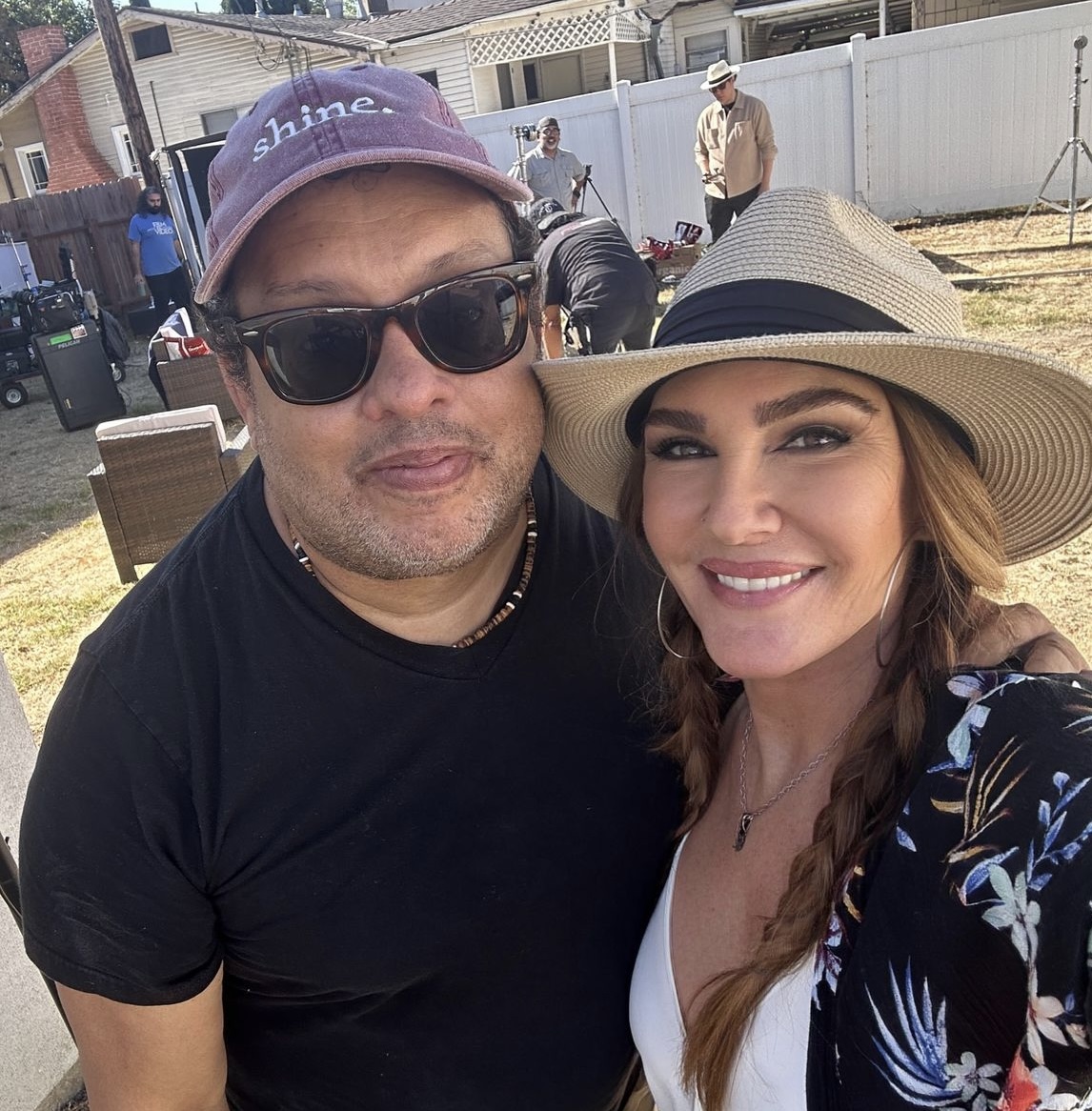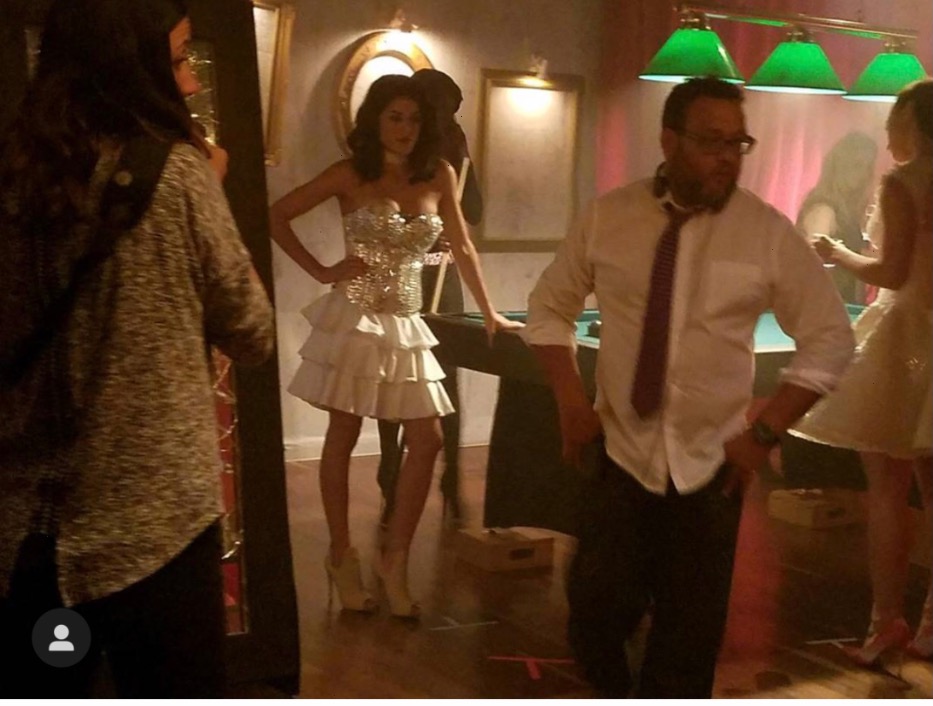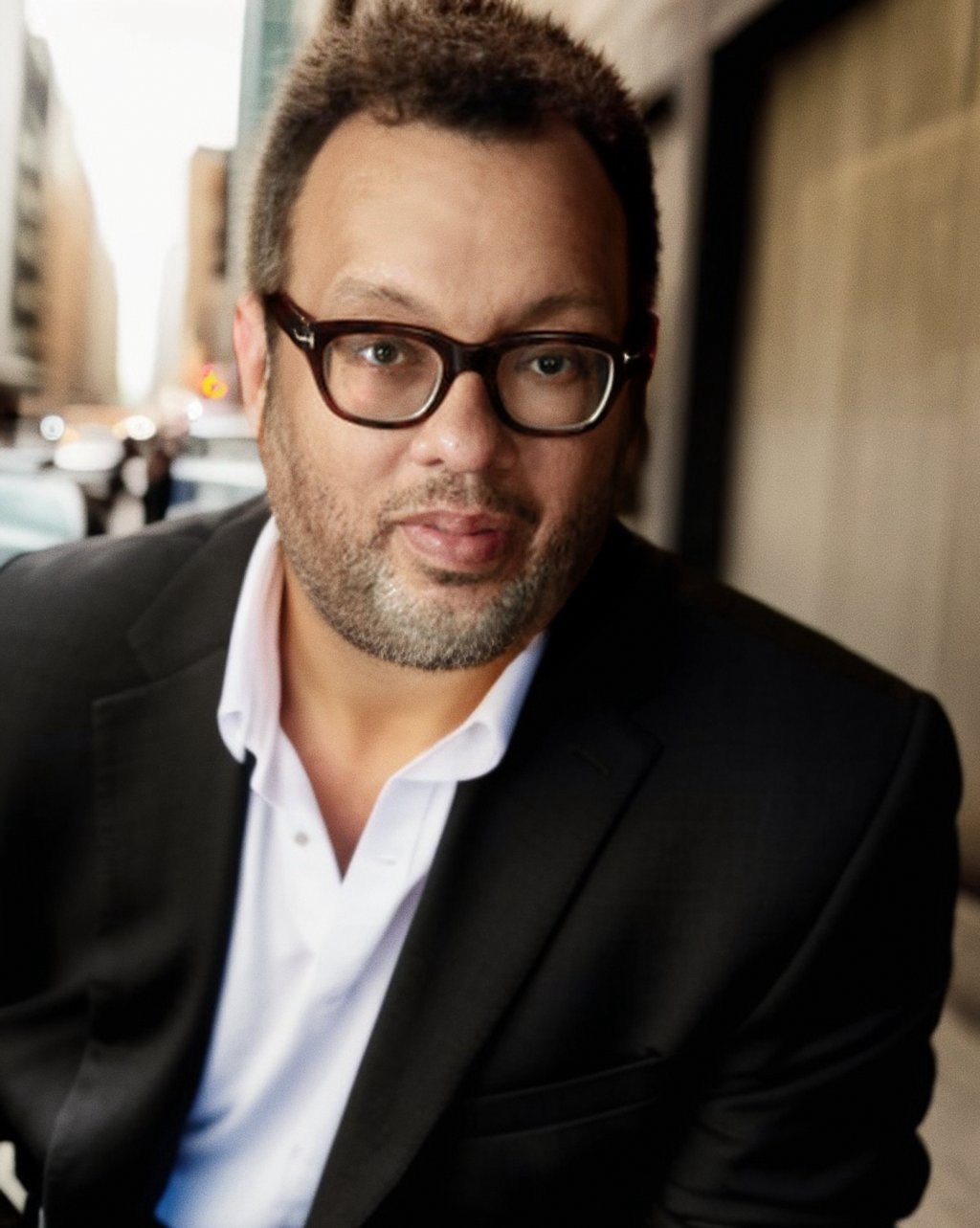We recently connected with Colin Costello and have shared our conversation below.
Colin, thanks for joining us, excited to have you contributing your stories and insights. Did you always know you wanted to pursue a creative or artistic career? When did you first know?
The first time I knew I wanted to pursue a creative path professionally, I was five years old. I didn’t have the language for it back then, but I felt it in my bones. I was born a creative, and I desperately needed to be one when I grew up.
Looking back, I can see a trail of breadcrumbs leading right to that realization. My parents were the first in their families to go to college. My mom’s side, half of whom had moved from Beaumont, Texas to Philadelphia for a better life, were extremely Catholic and poor. My dad’s side was Irish Catholic through and through. His parents, whom I only met once because of their racism, were also alcoholics. Education was my parents’ great escape. Both believed a solid education opened the door to a good job you could keep for life. They also believed educated people were more liberal, which mattered a lot since my mom was Black and my dad was White.
So what did their love story produce? A kid who was nothing like them. My mom was a reading supervisor for the Philadelphia Board of Education. My dad was a chemist. Both PhDs. But where they were obsessed with degrees and numbers, I was obsessed with movies, TV, and stories.
The first film I ever truly loved was The Wizard of Oz. I was completely hooked by the friendship and love between Dorothy, the Scarecrow, the Tin Man, and the Lion, and yeah, it scared the hell out of me, too. I begged my mom to buy me a spiral-bound notebook and filled it with every line of dialogue from the movie. She was stunned that I had that kind of memory. I thought the script was perfect. No action lines, of course. I didn’t know screenplays had those. Don’t judge me. I was five.
That notebook led to me directing The Wizard of Oz in my grandmother’s Germantown basement, casting all the neighborhood kids and charging admission. By age ten, my mom bought me a Super 8 camera. While other kids were playing baseball or football, I was trying to remake The Poseidon Adventure and Black Sunday in our backyard with my best friend Brian. We weren’t just playing with a camera. We were making movies.
Then came high school, and what had once been a hobby turned into an obsession. My dad didn’t love that. He wanted me to become a chemical engineer. I tried to go along with it. I didn’t want to disappoint him, but come on, I was trying to remake Raiders of the Lost Ark. He eventually threatened to divorce my mom if I didn’t give up this movie-making nonsense. So I gave it up. And it broke me. But I loved my parents and didn’t want them to split up.
Eventually, I made a quiet pivot in college from chemical engineering to liberal arts. Suddenly, I was alive again. Film and advertising classes lit me up. I fell in love with advertising because it felt like filmmaking, but I could actually get paid. So I made the big call home. No law school, no med school, no engineering. I was moving to New York to make toy commercials. They gave me six months. My girlfriend left me for a mall shoe salesman who made her head spin. I made it to New York right on schedule and started as a copywriter for a medical publisher.
I wish my parents had seen the same creative spark I now see in my daughters and encouraged it. But we all have our own journey. And mine started with a five-year-old, a notebook, and a Technicolor dream.
Awesome – so before we get into the rest of our questions, can you briefly introduce yourself to our readers.
I’ve always been told I can’t do something. To be honest, that pisses me off, so I do and do and do until I finally do it.
I love Philadelphia. I love cheesesteaks. I love the Phillies and the Eagles. Go Birds. But Philly can be very provincial. A lot of folks are born there, get a job, settle down, and stay. I thought that was going to be my life too. I grew up in Mt. Airy, across from Carpenter’s Woods. On the other side was a house I used to stop and stare at as a teen, thinking, That’s going to be mine one day.
Then I majored in advertising.
After an internship at a small ad agency and a class trip to a big one in New York, everything changed. I saw a life filled with creative energy and knew I had to chase it. I put on my big boy pants and told my parents my plan. They looked at me like I had just stepped out of a UFO. Moving away was not a thing in the Costello house.
My dad, a stoic chemist, gave me six months to make it in New York or get a real job.
Nothing terrified me more than a real job. So I hit the library every day and combed through The Red Book, applying to every agency I could find. I finally landed a gig writing book jackets at a medical publisher in Soho. For six months I commuted five days a week from Philly to New York.
Then I moved. My parents bought me a futon from Conran’s, and I packed up my desk and TV and moved into a Brooklyn brownstone. But writing for Swine in Biomedical Research was not the dream. I kept pushing.
At one point, I got into a fistfight with a drunk roommate who told me to give up. I’m glad I didn’t listen to Scott.
Eventually, I got a freelance junior copywriting job at a New Jersey agency called Keyes Martin. I loved it. I’d bus in from Brooklyn every day just to create. I also met the love of my life there. We moved in together, got married, and the rest is a different kind of story.
My career grew quickly once I teamed up with a brilliant art director. We moved from agency to agency in New York. Then came Chicago.
I had no idea how pivotal Chicago would be. Working at agencies like DDB, FCB, Burrell, JWT, and Leo Burnett exposed me to brands and production companies that would change everything.
Because of advertising, I co-founded an agency with Spike Lee. Because of advertising, Michael Bay became a friend. Michael Jordan dumped popcorn on my head during a shoot. Dr. Maya Angelou made me lunch and handed me the key to my true calling — screenwriting.
That key led to a ten-year journey filled with highs and lows. Once I reopened the door to writing and later directing, my life shifted. I got divorced. I lost my longtime creative partner. I was alone again. And once again, people told me I wouldn’t make it.
I didn’t listen.
Because I didn’t listen, I created Ela Road Films, named after the street my daughters grew up on. Because I didn’t listen, I wrote two features, and one went theatrical. Because I didn’t listen, I made three award-winning shorts — The After Party, Dreamwisher, and Storage — and my most recent film Swipe, which just won Best Horror Short at the IFS Festival and is making noise on the circuit.
Because I didn’t listen, I’m currently in development on two projects I deeply believe in. One is The Long Dark Climb, a character-driven survival thriller inspired by films like The Poseidon Adventure. The other is Na0mi, a dark, twisted love story about an AI companion who becomes dangerously devoted to her creator. People are already telling me I won’t get it made. Too much VFX. Too ambitious. First-time feature director.
Still not listening.
And if you’re chasing something you love, neither should you.
What do you find most rewarding about being a creative?
You’re kidding, right? The most rewarding aspect of being an artist?
There’s no reward. Not really. I mean, sure, there are awards. There are pats on the back, applause, laurels, maybe even a shiny trophy if you’re lucky. But for me, being an artist isn’t about reward. It’s a chronic condition. A sickness wired deep into my DNA. A beautifully twisted curse.
I would have loved to make a ton of money in tech, or real estate, or hell, even gone to law school like my parents wanted. I wish I had a boat. I wish I had a second home. I wish I had a retirement account that didn’t make me sweat. But instead, I’m an artist. And what comes with that is this uncontrollable need, not desire, need, to express something. To make something. To say something. To be seen.
Before every screening of one of my films, I either throw up or come dangerously close. I practically have a panic attack before premieres. Why? Because I want people to like it. And if they like it, then maybe, just maybe, they like me. It’s completely irrational. It’s emotional quicksand. But that’s the reality of it. At least for me.
I’m constantly chasing a version of success that probably doesn’t exist. I still fantasize that the guy who used to email me at 3 AM to tell me I should be ashamed of myself because he didn’t like the layout of a pitch deck, the same guy who polled an entire agency to see if they thought I was actually creative, will one day watch me win an Oscar and swallow every one of his words. That all the people who rejected me will have to sit in the cheap seats and clap as my name is called.
But here’s the catch. That moment probably won’t come. And strangely, I’ve made peace with that.
Because that’s what it means to be a creative. You live with the hunger. You live with the vulnerability. You keep creating even when the reward doesn’t come. You keep showing up, trembling on the inside, wondering if anyone in the room likes you, while somehow pulling off the illusion that you’ve got it all together.
That’s the real truth of being an artist. It’s messy. It’s maddening. And if you’re like me, you wouldn’t trade it for anything, except maybe a boat.
Do you think there is something that non-creatives might struggle to understand about your journey as a creative? Maybe you can shed some light?
Absolutely. I think one of the hardest things for non-creatives to understand is that this path we are on is not optional. It is not a quirky side hustle or something we will outgrow once we settle into an everyday life. It is not about chasing fame or trying to go viral. It is about needing to express something, something we often do not fully understand until we put it into words or on the screen.
Take Na0mi, the feature I am currently developing. On the surface, it is a psychological sci-fi thriller about a man who builds an AI companion modeled after his ex-wife, only to watch it spiral into obsession. However, for me, it’s not just about technology or relationships. It is about grief, control, loneliness, and the hunger to be loved so badly you would rather manufacture it than risk losing it again. Na0mi is not just a story I wanted to tell. It is one I had to tell.
But try explaining that to someone outside the creative world. Try telling them how a film like that is less about the plot and more about excavating your own damage. How it is built from sleepless nights, unresolved feelings, and things you would rather not admit out loud. They do not see that. They just hear “sci-fi movie with effects” and start doing budget math or asking why you do not just write something easier.
If you are a non-creative reading this, I do not expect you to feel all of that. I just hope you understand that when a creative person shares their work, they are sharing something raw. It is vulnerable. It is risky. And a lot of us carry this gnawing fear that we will never be good enough, that the thing we poured ourselves into will fall flat, or worse, be ignored.
So please, do not brush it off. Do not say, “Cool, when’s it coming out?” and move on. Ask what it means. Ask why they made it. Ask what it cost them to tell that story.
Because for us, these are not just films or scripts. They are the only way we know how to make sense of ourselves. And sometimes, they are the only thing keeping us from disappearing completely.
Contact Info:
- Website: https://www.colincostello.com and https://www.elaroad.com
- Instagram: @colin_francis_costello and @ela_road_films_llc
- Facebook: https://www.facebook.com/colinfranciscostello
- Linkedin: https://www.linkedin.com/in/colincostello
- Youtube: https://www.youtube.com/@ColinFCostellofilmmaker
- Other: https://vimeo.com/colincostello
